Find Help
More Items From Ergsy search
-
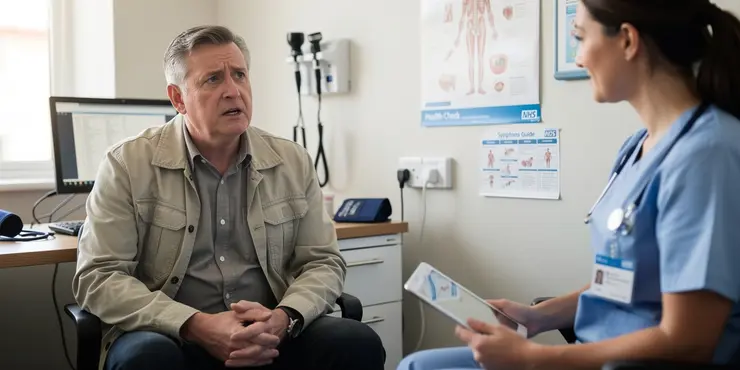
NHSGGC - Orthostatic Hypotension (OH)
Relevance: 100%
-
What are the symptoms of methanol poisoning?
Relevance: 9%
-
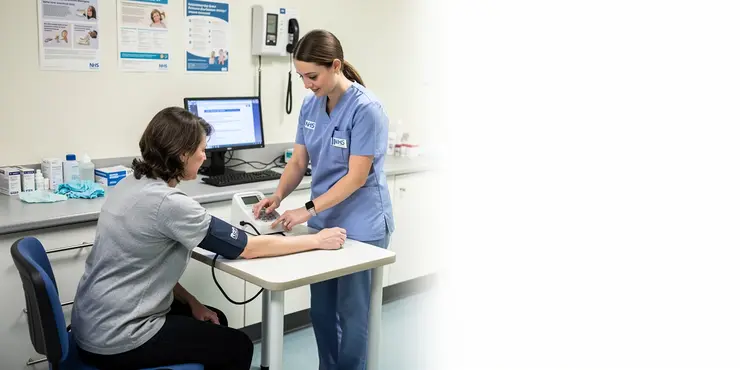
Seven Reaasons For Measuring blood pressure
Relevance: 9%
-
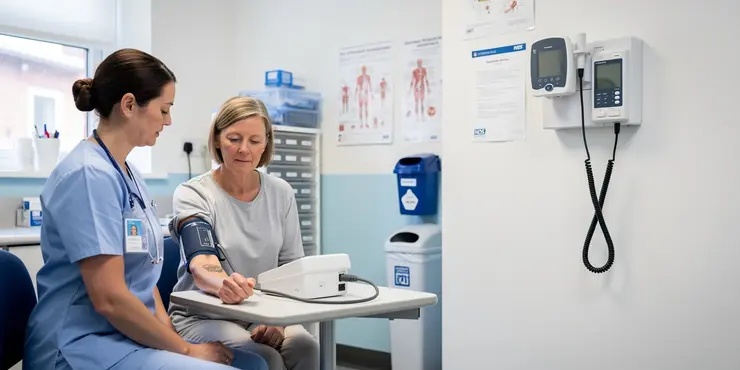
What are normal blood pressure ranges?
Relevance: 8%
-
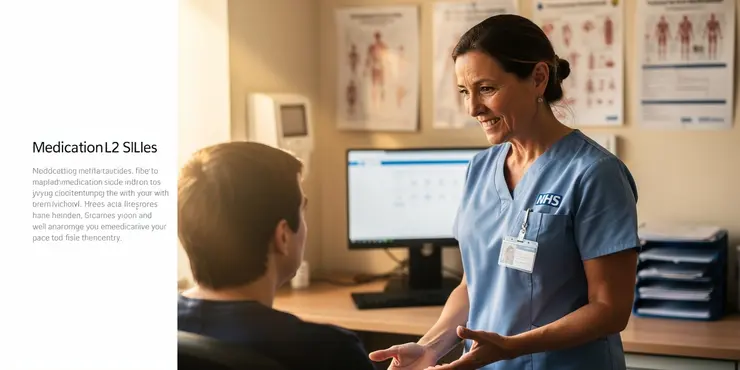
What are common side effects of Baxdrostat?
Relevance: 6%
-
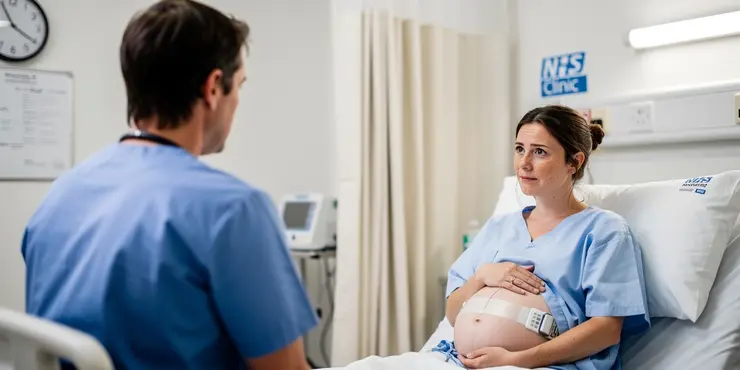
Is spinal anaesthesia safe for a Caesarean section?
Relevance: 6%
-
Can bacterial infections be transmitted through blood transfusion?
Relevance: 6%
-
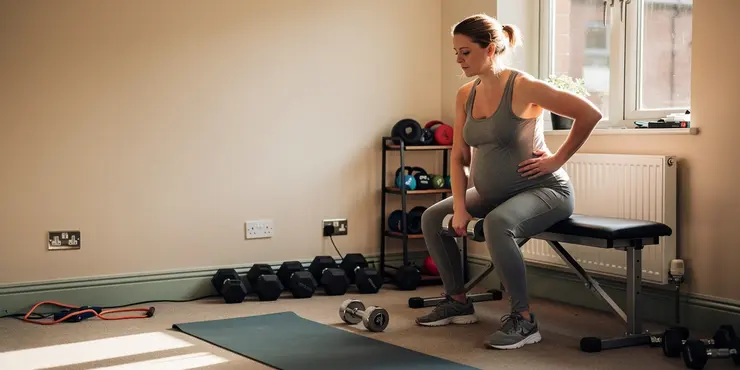
Should I avoid lying on my back during exercise?
Relevance: 5%
-
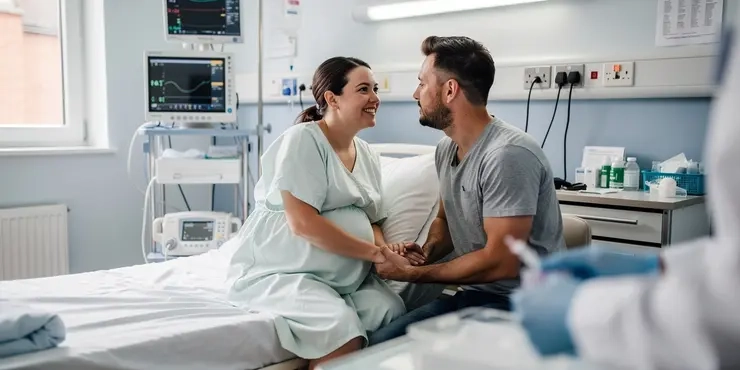
Spinal Anaesthesia for Caesarean Section
Relevance: 5%
NHSGGC - Orthostatic Hypotension (OH)
What is Orthostatic Hypotension?
Orthostatic Hypotension (OH), also known as postural hypotension, is a condition in which a person's blood pressure drops significantly upon standing up from a sitting or lying position. This condition can lead to dizziness, lightheadedness, or even fainting. It is particularly common among older adults and people with certain medical conditions.
Causes of Orthostatic Hypotension
OH can be caused by a variety of factors, including dehydration, prolonged bed rest, heart problems, diabetes, and certain medications. When you stand up, gravity pulls blood into your legs, and your body must compensate by narrowing blood vessels and increasing your heart rate. If this compensation mechanism fails, OH can occur.
Symptoms of Orthostatic Hypotension
Common symptoms of OH include dizziness, lightheadedness, blurred vision, weakness, and fainting. These symptoms typically occur within a few minutes of standing up and may improve when sitting or lying down. Severe cases can result in falls, which pose a significant health risk, particularly for elderly patients.
Diagnosis and Treatment
Diagnosis of OH is usually determined through a physical examination and patient history. Doctors may conduct a tilt table test to measure blood pressure changes upon standing. Treatment may involve lifestyle changes such as increased fluid and salt intake, wearing compression stockings, or adjusting medications that contribute to the condition. In some cases, medication may be prescribed to help manage symptoms.
Managing Orthostatic Hypotension
Management of OH often focuses on lifestyle modifications. Ensuring adequate hydration, rising slowly from seated or lying positions, and avoiding prolonged standing can help mitigate symptoms. Patients are encouraged to consult with their healthcare provider at the NHS Greater Glasgow and Clyde (NHSGGC) for personalised advice and treatment plans.
NHSGGC - Orthostatic Hypotension (OH)
What is Orthostatic Hypotension?
Orthostatic Hypotension (OH) is a condition. It happens when your blood pressure drops when you stand up. This can make you feel dizzy or like you might faint. It happens often to older people and those with some health problems.
Causes of Orthostatic Hypotension
OH can happen for different reasons. These include not drinking enough water, lying in bed for a long time, heart problems, diabetes, and some medicines. When you stand up, your body needs to work to keep your blood pressure steady. If it does not, OH can occur.
Symptoms of Orthostatic Hypotension
Signs of OH are feeling dizzy, blurry vision, feeling weak, and fainting. These signs usually start a few minutes after standing up. They often get better when you sit or lie down. Bad cases can cause falls, which are dangerous, especially for older people.
Diagnosis and Treatment
Doctors find out if someone has OH by examining them and asking questions about their health. They might do a special test that checks your blood pressure when you stand up. To treat OH, doctors might suggest drinking more water, eating salt, wearing tight socks, or changing medicines. Sometimes you might need medicine to help.
Managing Orthostatic Hypotension
To manage OH, you may need to change some habits. Drink enough water, stand up slowly, and avoid standing for too long. Talk to your doctor at the NHS Greater Glasgow and Clyde (NHSGGC) for advice that fits you.
Frequently Asked Questions
What is orthostatic hypotension?
Orthostatic hypotension (OH) is a condition where your blood pressure drops significantly when you stand up from sitting or lying down, leading to dizziness or lightheadedness.
What are the common symptoms of orthostatic hypotension?
Common symptoms include dizziness, lightheadedness, blurred vision, weakness, fatigue, and in severe cases, fainting when standing up.
What causes orthostatic hypotension?
Orthostatic hypotension can be caused by dehydration, prolonged bed rest, certain medications, and underlying medical conditions like diabetes, heart failure, and Parkinson's disease.
How is orthostatic hypotension diagnosed?
Diagnosis typically involves measuring your blood pressure while lying down and then again after standing up. A significant drop in blood pressure confirms the diagnosis.
What lifestyle changes can help manage orthostatic hypotension?
Increasing fluid and salt intake, wearing compression stockings, and avoiding standing up too quickly can help manage symptoms. It's important to consult your doctor before making these changes.
Can medications be used to treat orthostatic hypotension?
Yes, medications such as fludrocortisone or midodrine may be prescribed to manage orthostatic hypotension, but treatment is individualised based on the patient's condition.
Is orthostatic hypotension dangerous?
While it can cause discomfort and increase the risk of falls, it is usually manageable with lifestyle changes and medication. However, severe cases can indicate an underlying health issue that needs treatment.
What should I do if I feel dizzy after standing up?
If you feel dizzy, sit or lie down immediately to prevent falling. Drink water if dehydrated and seek medical advice if symptoms persist.
Can dehydration cause orthostatic hypotension?
Yes, dehydration can reduce blood volume, leading to a drop in blood pressure and causing orthostatic hypotension.
How does orthostatic hypotension differ from other types of hypotension?
Orthostatic hypotension specifically refers to a drop in blood pressure upon standing, whereas other types of hypotension may not be related to changes in posture.
Is orthostatic hypotension more common in certain age groups?
Yes, it is more common in older adults due to age-related changes in blood pressure regulation and an increased likelihood of chronic conditions and medications that affect blood pressure.
Can orthostatic hypotension be a side effect of medications?
Yes, certain medications, including diuretics, antidepressants, and medications for Parkinson’s disease, can cause orthostatic hypotension.
How can compression stockings help with orthostatic hypotension?
Compression stockings can help by improving blood flow and preventing blood from pooling in the legs, which reduces the risk of a sudden drop in blood pressure upon standing.
Should I avoid caffeine if I have orthostatic hypotension?
Caffeine can temporarily raise blood pressure, but it can also cause dehydration. It’s best to consult your doctor regarding caffeine intake if you have orthostatic hypotension.
Can orthostatic hypotension be prevented?
While it may not be entirely preventable, steps like staying hydrated, moving slowly from sitting to standing, and managing underlying health conditions can reduce the risk and severity of symptoms.
What is orthostatic hypotension?
Orthostatic hypotension is when you feel dizzy or lightheaded when you stand up. It happens because your blood pressure drops when you change positions.
Here's how you can feel better:
- Stand up slowly.
- Drink lots of water.
- Sit down if you feel dizzy.
If this happens a lot, tell an adult or a doctor. They can help you find ways to feel better.
Orthostatic hypotension (OH) is when your blood pressure goes down a lot when you stand up. This can make you feel dizzy or lightheaded.
What are the common signs of orthostatic hypotension?
Orthostatic hypotension is when your blood pressure drops when you stand up. This can make you feel dizzy or lightheaded. Here are some signs you might notice:
- You feel dizzy or like you're spinning.
- You might faint or pass out.
- Your vision could get blurry.
- You may feel weak or tired.
- Sometimes, you might feel confused.
If you feel like this a lot, talk to a doctor. They can help you find out why. When you stand up, try to get up slowly. This can help you feel better. Drinking water can also help keep your blood pressure steady.
Some signs you might notice are feeling dizzy, having blurry vision, feeling weak, getting very tired, and in bad cases, fainting when you stand up.
Tips: If you find these signs hard to manage, try sitting or lying down slowly. Drinking water can also help. If it keeps happening, tell a grown-up or see a doctor.
What makes you feel dizzy when you stand up?
Feeling dizzy when you stand up can happen because of:
- Not drinking enough water.
- Being sick or tired.
- Taking certain medicine from the doctor.
You can help by:
- Drinking more water.
- Standing up slowly.
If you feel dizzy a lot, talk to someone who can help, like a doctor.
Sometimes, when you stand up, you might feel dizzy. This can happen because:
- You haven't drunk enough water.
- You stayed in bed for a long time.
- You take certain medicines.
- You have a health problem like diabetes, heart trouble, or Parkinson's disease.
Here are some things that might help:
- Drink plenty of water every day.
- Try to move around a bit, even if you're in bed.
- Talk to your doctor if your medicine makes you dizzy.
- Ask for help if you have a health condition.
How do doctors find out if someone has orthostatic hypotension?
To find out if you have this problem, the doctor checks your blood pressure. They do it when you are lying down and then when you stand up. If the blood pressure goes down a lot when you stand up, the doctor knows you have this problem.
If you find reading hard, try using tools that read out loud for you or ask someone to read with you. You can also write down questions to ask your doctor if you need help understanding.
How can you change your daily habits to help with low blood pressure when standing up?
Here are some simple tips that might help you:
- Drink more water.
- Eat small meals more often instead of big meals.
- Stand up slowly after sitting or lying down.
- Wear special socks that help blood flow (compression stockings).
- Talk to your doctor about medicines that might help.
You can also ask someone to help remind you about these tips.
To feel better, try these tips:
- Drink more water and have a bit more salt.
- Wear tight socks to help your legs.
- Stand up slowly so you don't feel dizzy.
Talk to your doctor before you start doing these things.
Can medicine help with feeling dizzy when you stand up?
Yes, doctors can give medicines like fludrocortisone or midodrine to help people who feel dizzy when they stand up. The doctor will choose the best medicine for each person.
Can standing up make you feel dizzy?
When you stand up, do you feel dizzy or lightheaded? This is called orthostatic hypotension. It means your blood pressure drops when you stand.
If this happens a lot, talk to a doctor. They can help you feel better.
Here are some tips to help you:
- Stand up slowly. Give your body time to adjust.
- Drink lots of water to stay hydrated.
- Tell an adult if you feel dizzy often.
Feeling dizzy can be uncomfortable and might make you fall. But you can usually feel better by changing some daily habits and taking medicine. Sometimes, feeling very dizzy means there is a health problem that needs a doctor's help.
What to do if you feel dizzy when you stand up?
Sometimes, you might feel dizzy when you stand up. This can make you feel like you are going to fall.
Here are some tips to help:
- Move slowly from sitting to standing. This gives your body time to adjust.
- Hold onto something sturdy, like a chair or a table, when standing up.
- Drink plenty of water. Staying hydrated can help.
- If you feel dizzy, sit down right away to prevent falling.
- If this happens a lot, tell an adult or a doctor. They can help you figure out why.
Tools that can help:
- Use a wall or a walker to steady yourself when standing.
- Ask for help from a friend or family member.
If you feel dizzy, sit down or lie down right away so you don't fall. Drink water if you are thirsty. If you still feel dizzy, ask a doctor for help.
Does not drinking enough water make you feel dizzy when you stand up?
Yes, not drinking enough water can make the blood less. This can lower blood pressure and may make you feel dizzy when you stand up.
What makes orthostatic hypotension different from other kinds of low blood pressure?
Orthostatic hypotension happens when your blood pressure drops when you stand up. Other kinds of low blood pressure might not change when you sit or stand.
Do some age groups get orthostatic hypotension more often?
Yes, older people often have this problem more. This is because as we get older, our blood pressure changes. Older people might also have health problems or take medicine that can change blood pressure.
Can medicines make you dizzy when you stand up?
Some medicines can make people feel dizzy when they stand up. This is called orthostatic hypotension. If you feel dizzy, talk to your doctor. They can help you find out if your medicine is the reason.
Tip: You can use tools like reminders to take your medicine safely. Writing things down can also help you remember important information.
Yes, some medicines can make you feel dizzy when you stand up. These include water pills, medicines that help with sadness, and pills for Parkinson’s disease.
How do special socks help with feeling dizzy when standing up?
Special socks called compression stockings can help if you feel dizzy when you stand up. These socks are tight and can help blood move around your body better.
When you stand up, sometimes your blood can quickly go down to your legs and feet. This can make you feel lightheaded or dizzy. Compression stockings squeeze your legs a bit so the blood doesn't stay in your legs. This helps you feel better when you stand.
If you have trouble reading, you can use tools like audiobooks or text-to-speech on your device. These can read the text out loud to you.
You can also ask a friend or family member to read with you and help understand the information together.
Compression stockings are tight socks that give your legs a gentle squeeze. They help your blood move better and stop it from gathering in your legs. This can help you not feel dizzy when you stand up quickly.
Is it okay to drink caffeine if I get dizzy when I stand up?
Some people feel dizzy when they stand up. Doctors call this "orthostatic hypotension." Caffeine is in coffee, tea, and some fizzy drinks. It can make some people more dizzy. Talk to your doctor or nurse if you feel dizzy.
Here are some things that might help you:
- Drink water instead of caffeine drinks.
- When you stand up, do it slowly.
- Wear loose clothes so it is easy to move.
- Ask your doctor if special socks might help.
Remember, always ask a grown-up like a parent or doctor if you have questions.
Caffeine can make your blood pressure go up for a little while. It can also make you lose water, which is called dehydration. If you feel dizzy when you stand up (this is called orthostatic hypotension), you should talk to your doctor about how much caffeine is safe for you.
To help understand this better, you can try using pictures or diagrams. Writing down short notes can also help you remember.
Can we stop orthostatic hypotension?
Orthostatic hypotension means feeling dizzy or faint when you stand up. It happens because your blood pressure drops. Here is how you can try to stop it:
- Stand up slowly after sitting or lying down.
- Drink plenty of water. It helps keep your blood flowing well.
- Eat small meals. Big meals can make you feel more dizzy.
- Wear compression stockings. These are special socks that help blood move in your legs.
- Talk to a doctor. They can tell you other ways to help.
Remember, if you feel dizzy a lot, it's important to tell an adult or someone you trust.
You can't always stop these symptoms completely. But you can make them less likely and not as bad. Drink plenty of water. Stand up slowly when you get up from sitting down. If you have any health problems, take care of them with help from a doctor.
Useful Links
This website offers general information and is not a substitute for professional advice.
Always seek guidance from qualified professionals.
If you have any medical concerns or need urgent help, contact a healthcare professional or emergency services immediately.
Some of this content was generated with AI assistance. We’ve done our best to keep it accurate, helpful, and human-friendly.
- Ergsy carfully checks the information in the videos we provide here.
- Videos shown by Youtube after a video has completed, have NOT been reviewed by ERGSY.
- To view, click the arrow in centre of video.
- Most of the videos you find here will have subtitles and/or closed captions available.
- You may need to turn these on, and choose your preferred language.
- Go to the video you'd like to watch.
- If closed captions (CC) are available, settings will be visible on the bottom right of the video player.
- To turn on Captions, click settings .
- To turn off Captions, click settings again.
More Items From Ergsy search
-

NHSGGC - Orthostatic Hypotension (OH)
Relevance: 100%
-
What are the symptoms of methanol poisoning?
Relevance: 9%
-

Seven Reaasons For Measuring blood pressure
Relevance: 9%
-

What are normal blood pressure ranges?
Relevance: 8%
-

What are common side effects of Baxdrostat?
Relevance: 6%
-

Is spinal anaesthesia safe for a Caesarean section?
Relevance: 6%
-
Can bacterial infections be transmitted through blood transfusion?
Relevance: 6%
-

Should I avoid lying on my back during exercise?
Relevance: 5%
-

Spinal Anaesthesia for Caesarean Section
Relevance: 5%

